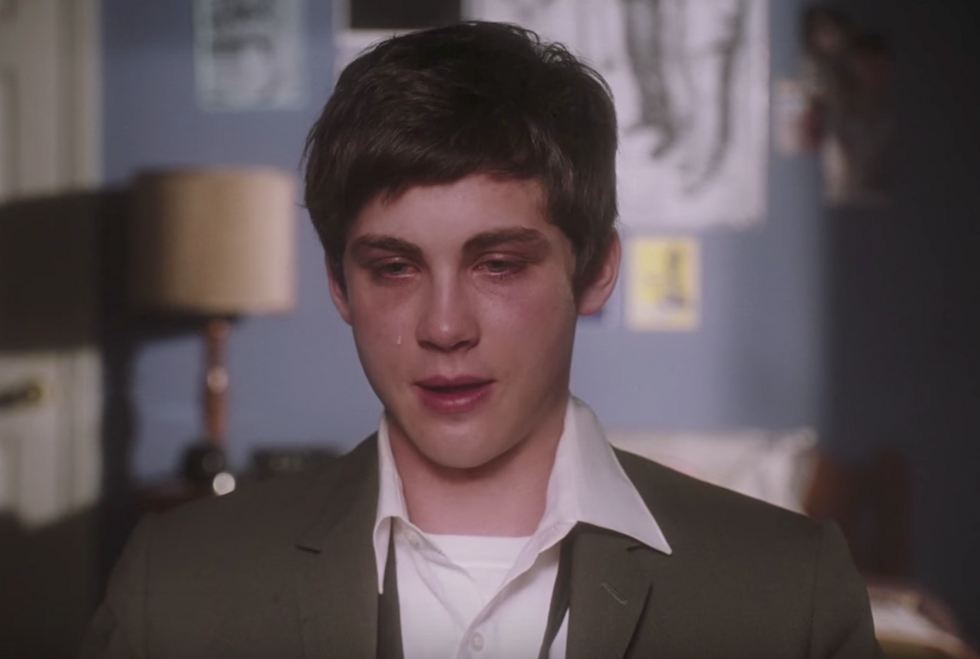Several weeks ago a woman wrote an article entitled, "I Raped My Boyfriend and I Didn't Even Know It." Thankfully, Odyssey has since removed the article from their site, but I couldn't let this article go unchecked from a perspective that hasn't been heard before: a man's.
Besides the obvious points of this article where the author brings up their consistent sexual assault against their boyfriend, where the author admits to forcing their boyfriend to have sex in the middle of the night when he was either unaware or unwilling, we can use this horrid article to articulate and bring awareness to the often glazed over issue of sexual assaults against men.
According to RAINN, one of the nation's leaders in education on sexual assault and sex crimes, the number of men is, as expected, much lower than women, but so significant it's hard to see why it's such a glossed-over issue.
Before we tackle the issue of men, it's important to understand how America, as a whole, deals with sexual assault. In the United States, a sexual assault occurs every 98 seconds, leading to 321,500 victims of sexual assault in the United States every year.
I wish I could write a million pages on this topic because the numbers are staggering for women, children, men, and even specific races. There's a LOT to talk about, and it's an unfortunate problem to have. r.
But when it comes to men, since 1997, which is when I was born, 2.78 million men have been the victim of a completed rape. Not to mention, 3% of men, or 1 in 33, are the victims of an attempted or completed rape. To wrap this up in a horrible bow, 1 in 10 rape victims are male.
In this New York Times article, which specifically focuses on women which can go to show just how hard it is to find research, 1 in 7 men have said they've been the victim of violence in a relationship. This survey also goes on to confirm out the statistic that approximately 2-3% of men are the victims of an attempted or completed rape.
So, why is it then that we brush over this issue? There's a few explanations, the first, and probably most well-known issue, is the lack of reporting my men in sexual crimes. I couldn't even find an accurate statistic, but most occur within their own homes, with people they know, and these men are scared and uncomfortable about reporting this specific crime because of the stereotypes associated with it.
There are a few reasons for this lack of reporting, and the University of Michigan summarizes three main, or many reasons, very well. First, men are supposed to be seen as dominant, masculine creatures. When a male is sexually assaulted, reporting it makes them seem less manly, they often feel judged by law enforcement, counseling services, or hospital and medical care teams. It seems nuanced to assume that men could just push a woman off of them, tell them to stop, or more, but yet they didn't.
The second explanation is homophobia. If a male is assaulted or raped by another male, they may begin to question their sexualities. Or, if the victim in question is hiding his sexual orientation, disclosing the crime may mean they out themselves to the community and their own family.
Finally, the lack of attention on the issue and denying the issue is even a problem makes men who are victims of sexual violence feel alone and uncomfortable. Feeling alone, unusual, or awkward means you're less likely to seek help and attention in this scenario.
So, turning our attention back to the argument at hand, the woman who wrote the article in question committed a crime. Not only that, they committed a crime so heinous, so disgusting it's possible she's left her former partner scared, alone, and questioning, afraid to ask for help. There is no such thing as raping someone without even knowing it, especially if they told you no explicitly. You, as a disgusting human being, took advantage of the stereotypes surrounding men in sexual assault by thinking it wasn't possible to violate and attack your partner.
This issue needs more conversations, more studies, more research, and fast. This issue affects thousands of men a year, and even though it's not as many as women, that doesn't make it any less important. Let's take a stand as a society and end sexual violence for men, women, and everyone from everywhere. Without standing up together, raising attention to the issue, we're to blame for the continued violence, and it cannot continue.




















